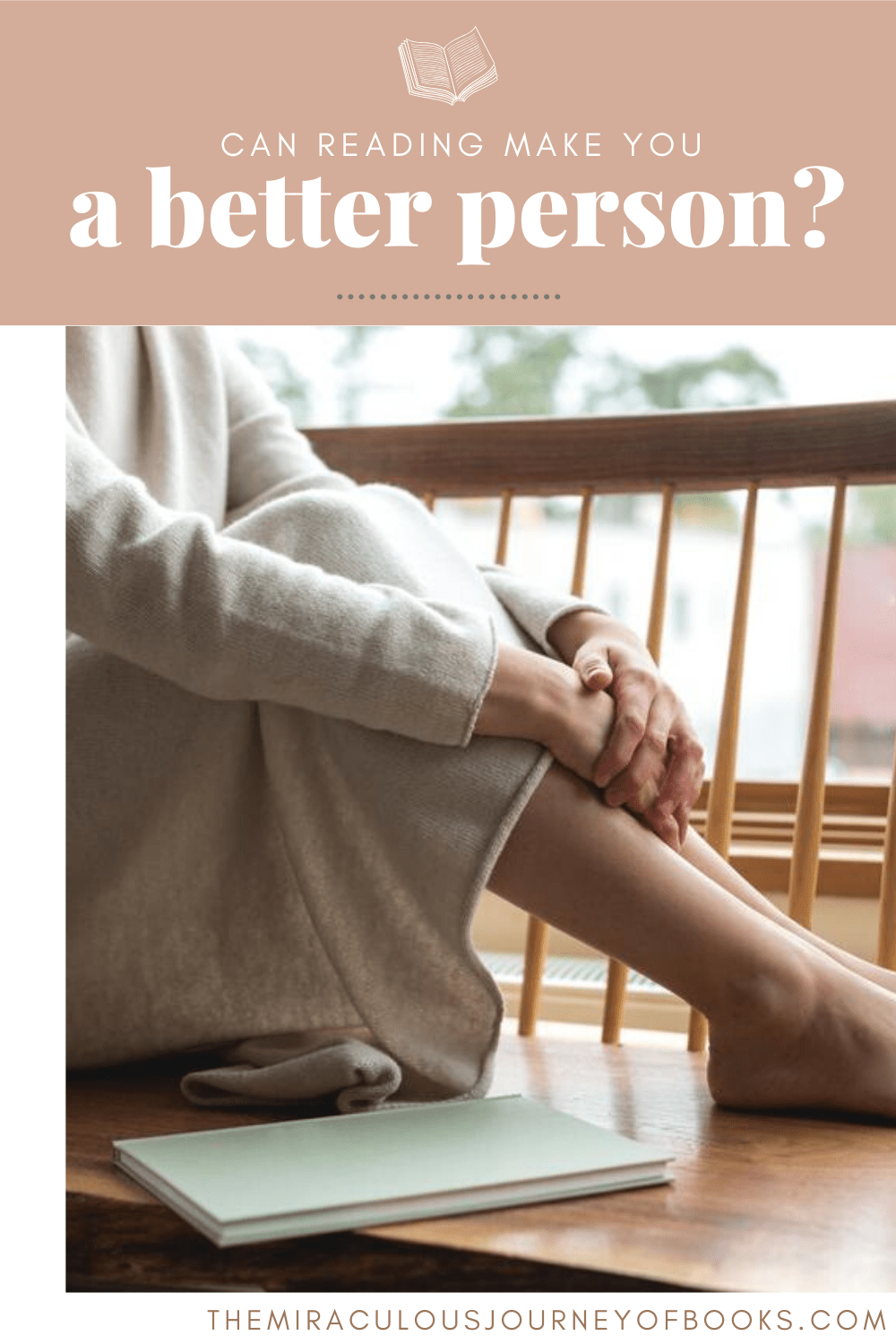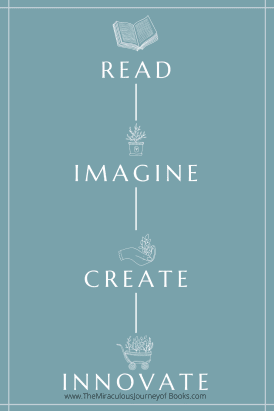Reading is magical because it is an activity that allows your mind to be creative and unrestrained. It can allow you to be so engrossed and connected to characters that you consider them your personal friends. Or maybe their enemy! Reading is magical because it is scientifically proven to change us. After reading this post, you will feel encouraged and empowered because you learned the scientific benefits of reading, which will help your child to become a better person. If you make time to read each day with your child, you are intentionally equipping them with the tools they need to make friends, deal with anxiety, and respond appropriately in any social situation.
*We use affiliate links to share products with you. If you use the link to make a purchase, the cost of the book doesn’t go up for you. However, we will receive a commission and we do appreciate your support.
Get Lost in a Story to Become a Better Person
When I was very young, I became engrossed in the stories I read. I memorized the story of PJ Funny Bunny in It’s Not Easy Being a Bunny because I read it so many times. I loved the main character, a bunny who wanted nothing more than to find a new family. It was a silly book and I couldn’t get enough of its humor.
In elementary school, I explored Karana’s beautiful island with the wolves, the cormorants, and the enchanting dolphins in Island of the Blue Dolphins. When would my family return to rescue us and how might we ever survive out there alone? I was so caught up in the story that it became my own tale of survival.
I also remember getting my first taste of World War II history while reading Lois Lowry’s Number the Stars. A man named Hitler did what? Why? It was dark, dangerous, and my mind went wild with ideas on how to save the Rosen family from Hitler’s wrath.
Being engrossed in a story is exciting. Make that your number one goal for reading with your child, and then enjoy these other benefits, as well.
1. Reading Shapes Your Brain
Recently, I came across a study done at Emory University by neuroscientists that focused on changed activity of the brain because of reading. In their results they found that “reading stories not only strengthen language processing regions but also affect the individual through embodied semantics in sensorimotor regions.” In other words, finding yourself lost in a novel improves your brain function and enhances connectivity in the brain. This includes both short-term and long-term positive effects.
Why is reshaping your brain important?
Reshaping your brain means that you are learning something new; you are becoming smarter! And not just with more knowledge. Reading can teach you relational skills and kindness, as well. We can learn anything!
Lead researcher on the Emory study, Gregory Berns told Psychology Today, “At a minimum, we can say that reading stories—especially those with strong narrative arcs—reconfigures brain networks for at least a few days. It shows how stories can stay with us. This may have profound implications for children and the role of reading in shaping their brains.”
This means it’s important for me to positively influence the children I teach by reading to them, with them, and in front of them; be a model reader. It literally rewires their brains, setting them up for future success, improving their intelligence, and social skills.
One of the questions that remains from the study is how long these positive effects might stick with a person. It seems likely that we can draw the conclusions that a regular practice of reading can have more benefits.
How Can We Prevent Dementia?
The health of our brain is something many people consider later in life, but it is important that we begin to contribute towards it in our early days. Start building these good reading habits with your kids now and they will be rewarded with better mental health later in life. Regular reading and writing practice will help to reshape and keep our minds sharp for the rest of our lives. Also, keep in mind that this is not a practice limited only to kids in grade school. As an adult, I love knowing that I can always learn something new!
A few years ago, an online issue of Neurology® and the medical journal of the American Academy of Neurology published a study that proves doing stimulating brain activities like reading and writing will help to preserve a person’s memory. According to the article, “The study found that the rate of decline was reduced by 32 percent in people with frequent mental activity in late life, compared to people with average mental activity, while the rate of decline of those with infrequent activity was 48 percent faster than those with average activity.” These long-term effects that reading has on our mind are motivating!
2. Reading Enhances Your Imagination
Imagination is more important than knowledge. For while knowledge defines all we currently know and understand, imagination points to all we might yet discover and create. -Albert Einstein
Are you a fan of the Montessori Method of education? Even if you only embrace some aspects of it, I bet you desire for your child to develop skills to master the creative learning process. What can you offer your child to inspire this creativity?
Reading, of course!
If we are rewiring our minds when we read, then that means we are becoming more imaginative and creative thinkers. We are learning to master the creative learning process! I believe the Emory study mentioned in point 1 supports this theory.
I appreciate how The World Literacy Foundation describes the connection between reading and imagination: Reading helps us practice imagination by letting the words describe a certain image while the reader manipulates the picture in the mind. This practice strengthens the mind as it acts like a muscle.
Piaget’s Theory of Learning
Consider this in light of famous psychologist Jean Piaget’s theory of the stages of cognitive development: from the age of two to seven years old, a child’s sense of imagination and intuition are strong. They are still developing concrete ideas, but they spend more time playing at this young age. According to a Johns Hopkins University Press article about the development of the imagination, it reminds us that Piaget believed that “training a child to play has been shown to increase the very young child’s capacity to engage in certain types of cognitive transformations.” When a child has a more developed imagination they are prepared for intellectual growth, and you can encourage their play time with stories!
Encourage Imagination While You Read
In my classroom, I frequently tell my students to “make a movie in their mind” while reading a book. They are allowing the words to guide them in manipulating a picture, which in turn, helps them to understand and process the author’s main point. This, then, allows them to think beyond that point or possibly imagine it a little differently, fostering creativity.
Now, let’s take this a step further: creativity is the reason people look at everyday situations differently. It allows us to problem-solve and innovate. Some of our greatest technological innovations would not exist if not for a creative thinker.
If we hope to foster innovative children who contribute to society, then we must teach them to be meaningful readers. This all begins with introducing them to a good book.
3. Reading Reduces Stress
Imagine yourself on an empty beach with the sound of the crashing waves surrounding you. You sense the aroma of salt in the air, and the sun warming your skin. Relaxed? I hope so, and I also have some good news to share! A book can have a similar effect.
A study from the University of Sussex that was conducted in 2009 shows that reading is one of the most effective ways to reduce stress. To further support this idea, an article on Self Development Secrets states:
- Reading for Six minutes a day reduces stress by 68 percent.
- Regular readers show lower rates of depression compared to non-readers.
- Reading is 300 percent more effective at reducing stress than going for a walk.
Stress can be the root of a myriad or health issues. And reducing our stress levels in this high-paced society is no easy task, but it is critical to our well-being.
Take the time to sit and be present with your child while reading a book. This simple practice will be a great model to help guide them when they face stressful circumstances one day. And let’s face it, we don’t want them to, but they will be confronted with stressful situations. Teaching kids to problem solve on their own matters a great deal. So why not introduce them to these skills while cuddled up reading a book? After all, it’s the best way to build a lasting, loving relationship with your child.
4. Reading Teaches Us Empathy & Compassion
One major lesson parents desire for their children to grasp is for them to become more compassionate towards others. This is possible through reading quality books!
What is the Difference Between Empathy & Compassion?
Empathy is a disposition that pervades our whole nature. This characteristic gives us the ability to connect with others in a meaningful way. Empathy moves you to show compassion towards someone. With compassion you are tangibly displaying your love for them.
I recently read Sarah Mackenzie’s book The Read-Aloud Family and she beautifully explains, “Stories, it turns out, are incredible empathy builders. The process of entering into a life different from our own compels us to see the world form another point of view.” She goes on to share research from Keith Oatley, a cognitive psychologist at the University of Toronto. He completed a study showing that reading fictional stories increases the empathetic response to people in their real life.
Making Emotional Connections While Reading
Reading changes us and allows us to become better, more compassionate people.
I recently read of another study that supports Keith Oatley’s. This study was published by the online journal PLOS ONE in 2014. Researchers found that while reading fiction the reader uses the same area of the brain that he would if he were experiencing the event himself.
In this study, participants read an excerpt from Harry Potter and the Sorcerer’s Stone that describes Harry’s first flying lesson. According to Psychology Today‘s article titled “Can Reading a Fictional Story Make You More Empathetic?”, as particpants read they showed activity in the same region of their brain that they would have if they were actually flying on a broom in a Quidditch match like Harry! In other words, they were experiencing the same cerebral connections as the characters who were physically moving, but the readers were sitting still.
We benefit from reading because we make mental and emotional connections with the experiences of the characters. We are experiencing the event as if we were in the character’s shoes.
Now, this is only true, according to the study, if readers have a strong connection to the story. They found lower levels of empathy toward others if there was no connection to the books they read. This was also true for the control group who read non-fiction books.
Choosing a book that allows you to engage with the characters’ experiences teaches you to be more compassionate.
Does It Matter What You Read?
It is important to note that the type of book you are reading makes a difference with these examples.
Other, similar studies to the ones monitoring a person’s ability to empathize show the same findings. However, one that especially interested me was shared in Scientific American. In this study readers were given reading material in two genres: literary (classic works of fiction) and popular fiction. Both of these are a type of fictional work. However, the article explains that in popular fiction “the settings and situations are grand, the characters are internally consistent and predictable, which tends to affirm the reader’s expectations of others.” This type of genre does not enhance a reader’s ability to empathize with others. He makes no connection to the characters.
Reading books that emphasize character’s relationships with one another will encourage us, as readers, to make similar connections. If characters are unpredictable and cause us to question their motives, then we apply those ideas to ourselves. Do we agree with this character’s actions? Do we want to think the same way? Should we act differently?
Sometimes it’s fun to read a popular fiction novel. They’re light, easy, and you still get to “escape.” However, it’s more beneficial to you if you choose your fiction mindfully. It will have a greater impact on your personal character and helping to shape you into a better person.
Light Reading Has Its Place
I want to note that just because a book is an “easy read,” it doesn’t mean that it can’t serve a good purpose. Many young children choose simple books because they allow them to build their fluency and reading stamina. This is important! It also gives your child the opportunity to identify as a reader.
I personally read every Nancy Drew book that is in print when I was in elementary school. It is because of that series that I realized how much I love to read. The stories were too easy for me, but I loved them. And I loved the characters! Once I moved on from these books, I felt more confident to begin reading other works of fiction; stories that were more substantial and challenged me as a reader. Even the simple stories can help you on your path to becoming a better person.
What Does This Mean For Us?
Every year I have students walk through my classroom door that have no desire to read. For them, I truly believe that they have just not found the right book. My goal is to surround them with great book choices and immerse them in a community of readers. Once they begin hearing other students raving about their reading choices, recommending books they’ve finished with other readers, and eagerly devouring novels, they become interested. I have rarely had an issue with them ending the year with the same mindset.
Fortunately, they don’t just walk out the door with a good book in their hand. They also enjoy the benefits of growing their mind, enhancing their creativity, and becoming more compassionate towards others.
They need to make these connections between the joy of reading and what it does for them personally. Every child deserves the opportunity to engage in the experience of reading and the places it can take them.
It’s not that the uninterested child doesn’t measure up to the others. They just haven’t found what works for them yet. It is our responsibility as model readers to guide them there. Helping kids find a suitable book takes practice, but it is definitely a skill that can be learned.
Don’t Pick Up a Book Because You Want to Be a Better Person
I appreciate Mark Athitakis’s article in The Washington Post where he cites a number of great studies touting the benefits of reading and then states, “But I also think that these studies miss a bigger point by implying that reading fiction is, at its best, a tidy cause-and-effect process. Enter intellectually weak and benighted, exit emotionally toned and trim, as if a novel were the psychological equivalent of kettlebells or a Peloton bike. Fiction’s strength, though, is that it delivers not order and clear direction, but mess and evocations of our unsteady state of being.”
It’s true. Reading has numerous benefits, as we discussed. However, each of these are side benefits. If you treat reading as something on your checklist; something you have to do before you move on with your day, it’s not going to have the desired effect you’re hoping for.
People are complex, and so are the characters in our books. They will move each of us in a different way if we allow ourselves to become lost in the story.
And that is the key – get lost in the story. Read because you want to read. Enjoy the characters because they’re your friends. Visit far-away lands because of the excitement of the journey. Don’t read with the purpose of becoming a better person.
Becoming a Better Person On Your Reading Journey
With the knowledge of the scientific benefits of reading in your toolbox, you are empowered to equip your child with the resources they need as they encounter life’s trials. Being intentional about reading with your child will help them to deal with everyday stressful situations, show compassion towards others, grow in knowledge, and enhance their imagination. Sharing this time together will help them to become a better person.
Comment below to tell us about your personal reading experience! Do you feel a strong connection to a character in a book you’ve read? A literary friend who helped to shape the way you think?






